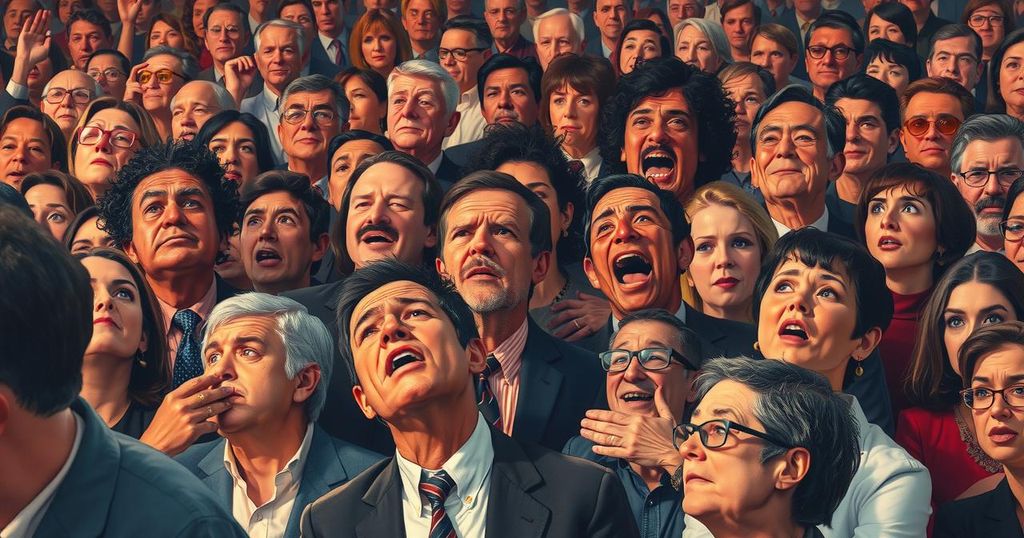Peter Obi Alleges Nigerian Youths Abused for ₦20,000, Sparks Mixed Reactions

Peter Obi, Labour Party’s presidential candidate, alleges Nigerian youths are taking ₦20,000 to insult him. His comments, made at an event in Washington, have ignited mixed reactions online. Criticism and support arise from various individuals, indicating a polarized viewpoint in Nigerian politics. Potentially, new contenders for the 2027 election are also emerging amidst this backdrop.
Peter Obi, the Labour Party’s candidate in the recent presidential election, has made headlines again by alleging that some Nigerian youths are being paid ₦20,000 to insult him. Speaking at an event in Washington, D.C., Obi expressed his discontent, noting that those he aims to support are reportedly undercutting his efforts. This revelation has sparked a wave of mixed reactions among Nigerians—some support him while others vehemently criticize him.
Obi has found himself in a contentious position since placing third in the last election behind Atiku Abubakar of the Peoples Democratic Party (PDP) and incumbent President Bola Tinubu of the All Progressives Congress (APC). He has been an outspoken critic of Tinubu’s administration, which adds yet another layer to this ongoing narrative. The former governor’s statement has tapped into the deeper frustrations felt across the political landscape in Nigeria.
Reactions on social media have been varied and intense. Supporters of Obi and other political figures have taken to different platforms to voice their opinions. Some, like Yakub Tijani, accuse Obi’s supporters of being manipulative, while others express disillusionment with the broader Nigerian public. Anthony Ibeh painted a starkly negative picture of the state of Nigerian society, indicating a sense of hopelessness and confusion among the populace.
Critics also questioned Obi’s own record while in power, with Oloyede emphasizing his past governance in Anambra State. Meanwhile, opinions like Im Beejay’s suggest that economic manipulation is at play, asserting that support for Tinubu is financially incentivized. Responses like those from Obong Goodnews have likened Obi’s followers to a ‘gullible’ crowd, highlighting how heated the debate has become.
Additionally, the narrative continues to swirl around potential presidential candidates for 2027. PDP’s Segun Sowunmi has suggested he will run against Tinubu, presenting himself as a better alternative compared to Obi and others. This ongoing political saga suggests a vibrant and, at times, chaotic landscape in Nigeria’s governance.
Peter Obi’s claims about Nigerian youths being financially incentivized to insult political figures illustrate the growing tensions within the country. His comments have triggered a mix of support and backlash, reflecting a divided public opinion. As the political landscape shifts with upcoming elections, especially with potential candidates like Segun Sowunmi emerging, these discussions will only become more critical and complex in Nigeria’s ongoing political narrative.
Original Source: www.legit.ng







